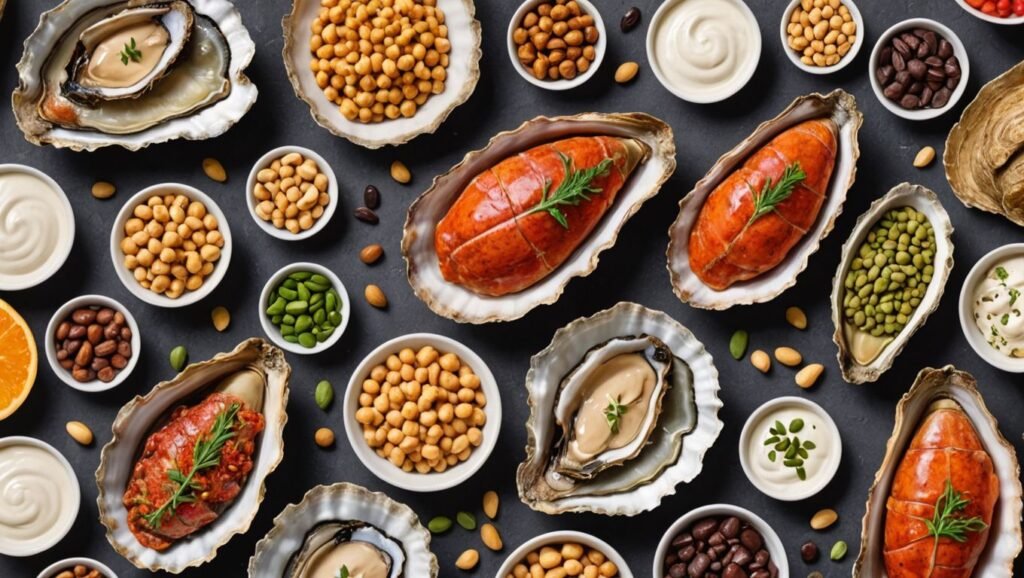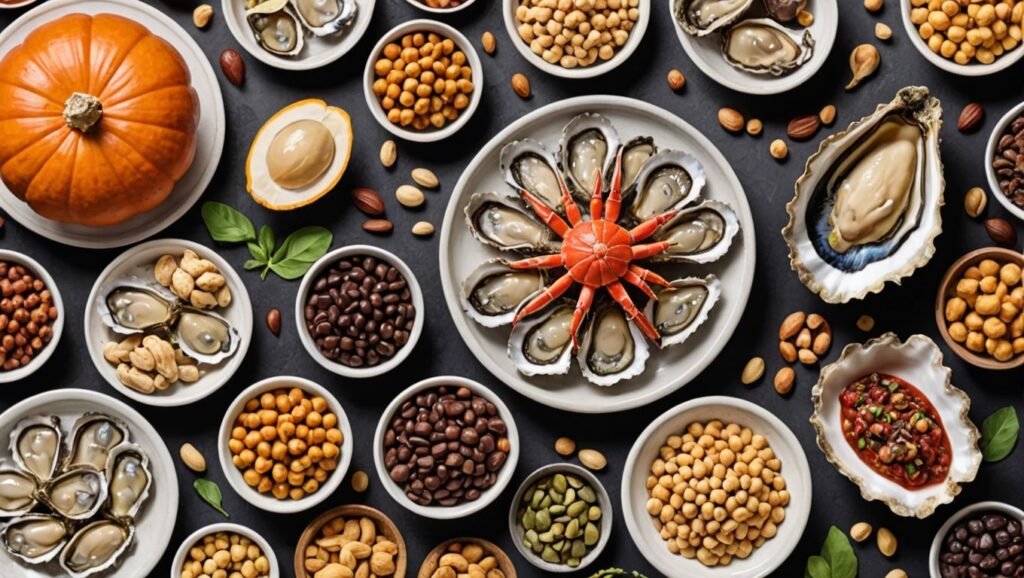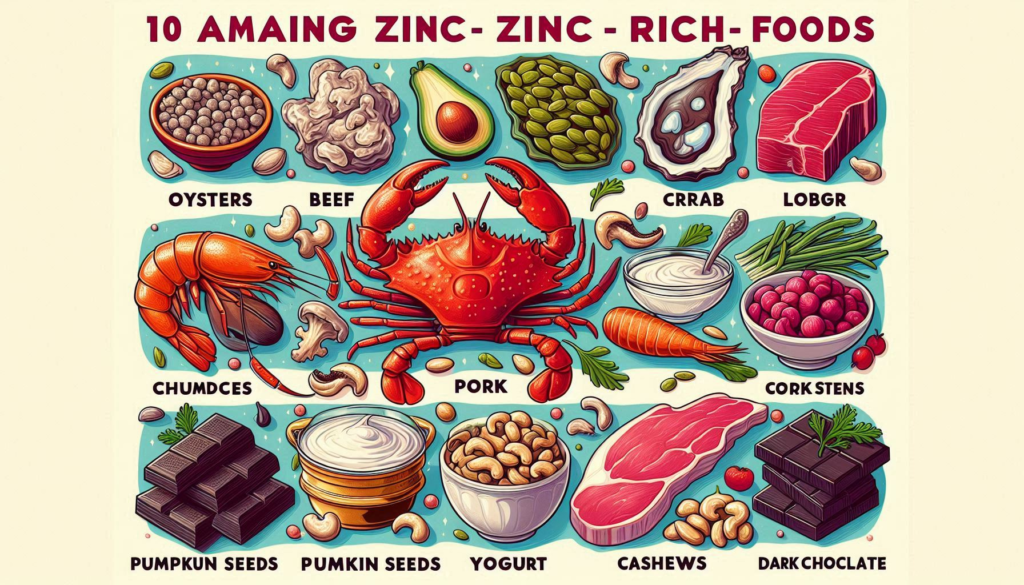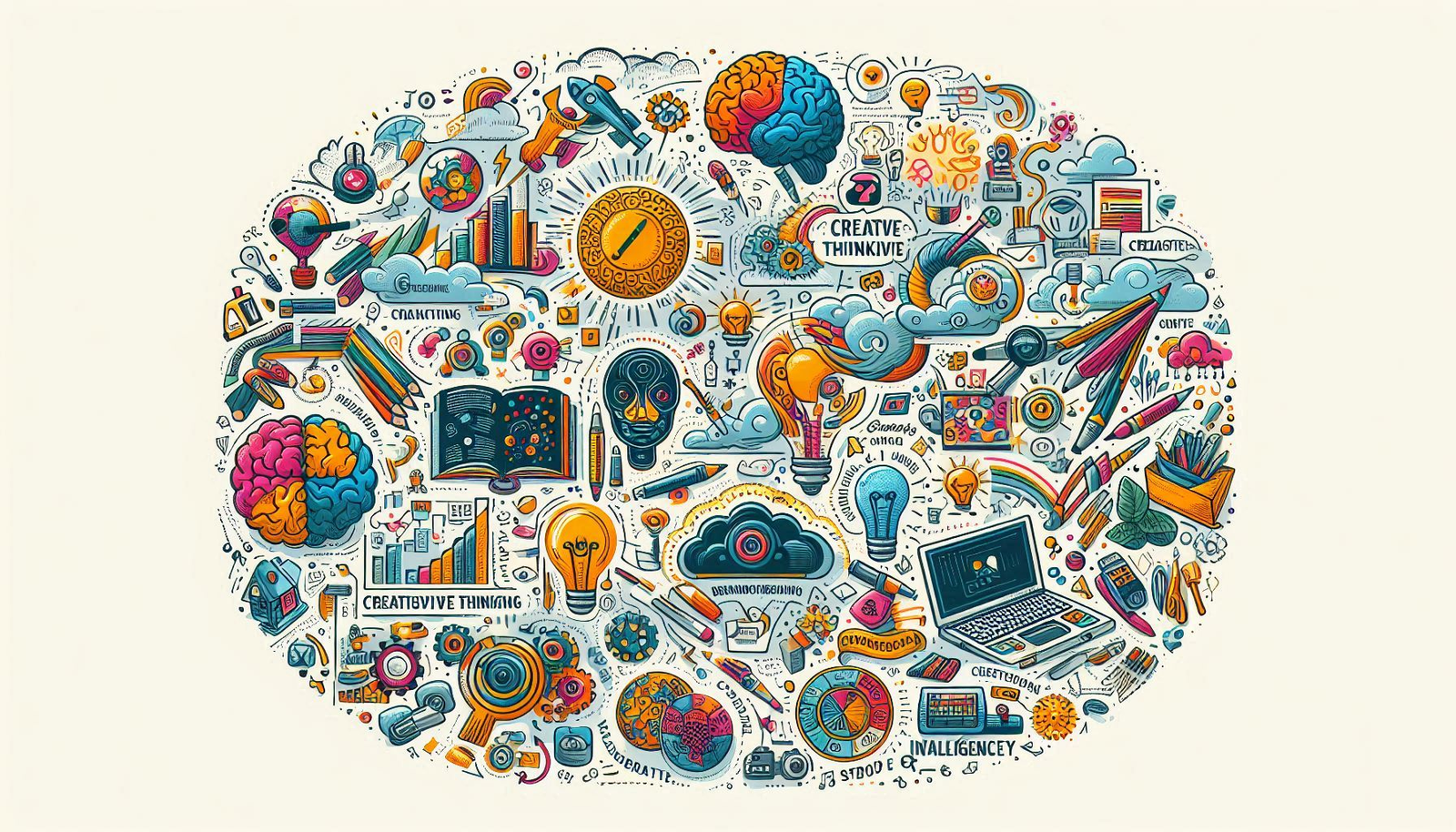
10 Amazing Zinc-Rich Foods to Elevate Your Health
Discover 10 Amazing Zinc-rich Foods that enhance health and support your body’s essential functions. Elevate your diet today!


Understanding Zinc: An Essential Mineral for Health
Zinc is a crucial micronutrient that plays a vital role in maintaining your overall health and well-being. This essential mineral is involved in numerous bodily functions, from supporting your immune system to aiding in wound healing. Despite its importance, many people are unaware of the significant impact zinc has on their health.
As a trace element, your body only requires small amounts of zinc to function properly. However, because your body doesn’t store zinc, it’s essential to consume it regularly through your diet or supplements. Understanding the importance of zinc and incorporating zinc-rich foods into your meals can significantly contribute to elevating your health and preventing various health issues.
In this comprehensive guide, we’ll explore the multifaceted benefits of zinc, identify the best food sources, and provide expert tips on how to optimize your zinc intake for better health. Whether you’re looking to boost your immune system, improve your skin health, or enhance your overall well-being, this article will equip you with the knowledge and practical strategies to harness the power of zinc in your daily life.
The Role of Zinc in Your Body’s Functions
Zinc is involved in a wide array of biological processes, making it indispensable for your overall health. Here are some of the key functions zinc performs in your body:
- Immune System Support: Zinc plays a crucial role in the development and function of immune cells. It helps your body fight off invading bacteria and viruses, making it essential for maintaining a robust immune system.
- Protein Synthesis: This mineral is vital for the production of proteins in your body, which are the building blocks of cells, tissues, and organs.
- DNA Synthesis: Zinc is necessary for the proper replication and repair of DNA, which is crucial for cell division and growth.
- Wound Healing: Zinc accelerates the healing process of wounds by promoting collagen synthesis and cell proliferation.
- Enzymatic Reactions: It acts as a cofactor for over 300 enzymes in your body, facilitating various biochemical reactions.
Moreover, zinc is essential for maintaining healthy skin, promoting proper growth and development in children, and supporting reproductive health in both men and women. Its role in taste and smell perception is also noteworthy, as zinc deficiency can lead to a reduced ability to taste and smell properly.
Given its widespread involvement in bodily functions, ensuring adequate zinc intake is crucial for maintaining optimal health and preventing various health issues. In the following sections, we’ll delve deeper into how you can identify zinc deficiency and incorporate zinc-rich foods into your diet to reap these health benefits.
Signs and Symptoms of Zinc Deficiency
Recognizing the signs of zinc deficiency is crucial for maintaining your overall health. While severe zinc deficiency is rare in developed countries, mild to moderate deficiency can occur, especially in certain populations. Here are some common signs and symptoms to watch out for:
- Impaired Immune Function: If you find yourself falling sick more often or taking longer to recover from illnesses, it could be a sign of zinc deficiency. Zinc plays a vital role in immune cell function, and its deficiency can compromise your body’s ability to fight off infections.
- Slow Wound Healing: Zinc is essential for proper wound healing. If you notice that cuts, scrapes, or surgical incisions are taking longer than usual to heal, it might indicate insufficient zinc levels in your body.
- Hair Loss: Zinc is crucial for protein synthesis and cell division, both of which are important for hair growth. Unexplained hair loss or thinning could be a symptom of zinc deficiency.
- Skin Problems: Zinc deficiency can manifest as various skin issues, including acne, eczema, or dry, rough skin. If you’re experiencing persistent skin problems, it might be worth checking your zinc levels.
- Loss of Appetite: Zinc plays a role in regulating appetite. A deficiency can lead to a decreased sense of taste and smell, which may result in a reduced appetite or even anorexia in severe cases.
It’s important to note that these symptoms can also be caused by other health conditions. If you suspect you might have a zinc deficiency, it’s best to consult with a healthcare professional who can perform appropriate tests and provide a proper diagnosis. In the next section, we’ll explore the top zinc-rich foods you can incorporate into your diet to prevent deficiency and optimize your health.

Top 10 Zinc-Rich Foods to Include in Your Diet
Incorporating zinc-rich foods into your daily meals is an excellent way to ensure you’re meeting your body’s zinc requirements. Here’s a list of the top 10 zinc-rich foods you should consider adding to your diet:
- Oysters: Oysters are the highest natural source of zinc. Just six medium oysters provide more than 500% of your daily zinc needs.
- Beef: Lean beef is an excellent source of zinc. A 3-ounce serving of beef chuck roast contains about 7 mg of zinc, which is nearly half of the daily recommended intake.
- Crab: Alaskan king crab is particularly high in zinc. A 3-ounce serving provides about 6.5 mg of zinc.
- Lobster: Another seafood option rich in zinc. A 3-ounce serving of cooked lobster contains about 3.4 mg of zinc.
- Pork: Lean pork chops are a good source of zinc. A 3-ounce serving provides about 2.9 mg of zinc.
- Chickpeas: For vegetarians and vegans, chickpeas are an excellent plant-based source of zinc. One cup of cooked chickpeas contains about 2.5 mg of zinc.
- Pumpkin Seeds: These seeds are packed with zinc. Just one ounce of pumpkin seeds contains about 2.2 mg of zinc.
- Yogurt: Low-fat yogurt is not only a great source of calcium but also provides zinc. One cup of plain yogurt contains about 1.4 mg of zinc.
- Cashews: A handful of cashews (about 1 ounce) provides 1.6 mg of zinc, making them a great snack option.
- Dark Chocolate: For those with a sweet tooth, dark chocolate is a delicious way to get some zinc. A 100-gram bar of 70-85% dark chocolate contains about 3.3 mg of zinc.
By incorporating these foods into your diet, you can ensure you’re getting a good amount of zinc from natural sources. Remember, variety is key to a balanced diet, so try to include a mix of these foods in your meals throughout the week.
Plant-Based vs. Animal Sources of Zinc
When it comes to zinc sources, both plant-based and animal-derived foods can contribute to your daily intake. However, there are some important differences to consider:
Animal Sources of Zinc: Animal-based foods are generally considered superior sources of zinc due to their higher bioavailability. This means that the zinc in these foods is more easily absorbed and utilized by your body. Some key animal sources include:
- Oysters and other shellfish
- Red meat (beef, pork, lamb)
- Poultry
- Fish
- Dairy products (milk, cheese, yogurt)
- Eggs
These sources typically provide zinc in a form that your body can readily absorb and use.
Plant-Based Sources of Zinc: While plant-based sources can also provide zinc, the bioavailability is generally lower due to the presence of phytates, which can inhibit zinc absorption. However, for vegetarians and vegans, these sources are crucial. Some plant-based zinc sources include:
- Legumes (chickpeas, lentils, beans)
- Nuts and seeds (pumpkin seeds, cashews, almonds)
- Whole grains
- Fortified cereals
- Tofu and tempeh
- Dark leafy greens
To enhance zinc absorption from plant-based sources, you can employ certain preparation methods like soaking, sprouting, or fermenting, which can help reduce phytate content.
It’s worth noting that while animal sources generally provide more readily absorbable zinc, a well-planned plant-based diet can still meet your zinc needs. If you follow a vegetarian or vegan diet, you may need to pay extra attention to your zinc intake and consider zinc-fortified foods or supplements if necessary.
In the next section, we’ll discuss strategies to maximize zinc absorption from your food, regardless of whether you prefer animal or plant-based sources.
How to Maximize Zinc Absorption from Foods
Ensuring that your body efficiently absorbs the zinc you consume is just as important as including zinc-rich foods in your diet. Here are some strategies to help you maximize zinc absorption:
- Pair Zinc with Protein: Consuming zinc-rich foods alongside protein sources can enhance absorption. This is because protein helps transport zinc through your intestinal walls.
- Reduce Phytate Intake: Phytates, found in whole grains, legumes, and nuts, can inhibit zinc absorption. To reduce phytate content:
- Soak nuts, seeds, and legumes before cooking
- Sprout grains and legumes
- Use fermentation methods (like in sourdough bread)
- Avoid Excessive Iron Supplements: High doses of iron can interfere with zinc absorption. If you need both iron and zinc supplements, take them at different times.
- Moderate Your Fiber Intake: While fiber is essential for health, very high fiber diets can reduce zinc absorption. Balance your fiber intake with zinc-rich foods.
- Consider Cooking Methods: Certain cooking methods can affect zinc content and absorption:
- Grilling or roasting meats can increase zinc availability
- Lightly steaming vegetables preserves more nutrients compared to boiling
- Combine Plant and Animal Sources: If you’re not strictly vegetarian or vegan, combining plant and animal sources of zinc in a meal can improve overall absorption.
- Include Vitamin C: While not directly impacting zinc absorption, vitamin C can counteract the effects of phytates. Include vitamin C-rich foods in your zinc-containing meals.
- Be Mindful of Calcium Intake: High doses of calcium can interfere with zinc absorption. If you take calcium supplements, do so at a different time than your zinc-rich meals.
- Avoid Excessive Alcohol: Chronic alcohol use can impair zinc absorption and increase zinc excretion.
- Consider Zinc Status: If you’re deficient in zinc, your body will absorb it more efficiently. However, it’s best to maintain adequate levels through a balanced diet rather than relying on this mechanism.
By implementing these strategies, you can ensure that your body is making the most of the zinc you consume. In the next section, we’ll explore some delicious zinc-packed recipes to help you incorporate these principles into your daily meals.
Zinc-Packed Recipes for Every Meal
Incorporating zinc-rich foods into your daily diet doesn’t have to be a chore. Here are some delicious recipes that are not only packed with zinc but also balanced with other essential nutrients:
Breakfast: Pumpkin Seed and Berry Yogurt Parfait
- Layer Greek yogurt with mixed berries and a generous sprinkle of pumpkin seeds
- Top with a drizzle of honey and a dash of cinnamon
- This breakfast provides zinc from the yogurt and pumpkin seeds, along with antioxidants from the berries
Lunch: Chickpea and Spinach Salad with Grilled Chicken
- Toss cooked chickpeas with baby spinach, cherry tomatoes, and diced cucumber
- Add grilled chicken breast for an extra zinc boost
- Dress with a lemon-olive oil vinaigrette
- This salad combines plant and animal sources of zinc for optimal absorption
Dinner: Beef and Vegetable Stir-Fry with Brown Rice
- Stir-fry lean beef strips with a mix of colorful vegetables (bell peppers, broccoli, carrots)
- Season with garlic, ginger, and a low-sodium soy sauce
- Serve over brown rice
- This meal provides zinc from the beef, with added nutrients from the vegetables and whole grain rice
Snack: Dark Chocolate and Cashew Energy Balls
- Blend dates, cashews, cocoa powder, and a touch of sea salt in a food processor
- Roll into bite-sized balls and coat with shredded coconut
- These energy balls offer zinc from both the cashews and dark chocolate
Seafood Special: Oyster and Crab Chowder
- Simmer oysters and crab meat in a creamy broth with potatoes and corn
- Season with thyme and a touch of smoked paprika
- This chowder is an excellent way to boost your zinc intake, especially during colder months
Remember to pair these zinc-rich meals with vitamin C-rich foods or beverages to enhance absorption. A glass of orange juice with your breakfast parfait or a side of bell peppers with your stir-fry can make a significant difference.
By incorporating these recipes into your meal rotation, you’ll be well on your way to meeting your daily zinc requirements while enjoying delicious and varied meals.
Combining Zinc-Rich Foods with Other Nutrients
To optimize your overall health and enhance the benefits of zinc, it’s crucial to combine zinc-rich foods with other essential nutrients. This approach not only ensures a balanced diet but also promotes better absorption and utilization of zinc in your body. Here are some strategic nutrient combinations to consider:
- Zinc + Vitamin C:
- Why: Vitamin C can help counteract the effects of phytates, which can inhibit zinc absorption.
- How: Add citrus fruits to your zinc-rich meals, or include vitamin C-rich vegetables like bell peppers in your dishes.
- Zinc + Protein:
- Why: Protein aids in the transportation and absorption of zinc in your body.
- How: Combine zinc-rich seeds or legumes with lean meats or fish in your meals.
- Zinc + Vitamin A:
- Why: Zinc and vitamin A work synergistically to support immune function and eye health.
- How: Pair zinc-rich foods with orange or dark green vegetables high in beta-carotene (a precursor to vitamin A).
- Zinc + Vitamin D:
- Why: Both nutrients are crucial for immune function and bone health.
- How: Consume zinc-rich dairy products that are also fortified with vitamin D.
- Zinc + B Vitamins:
- Why: B vitamins, especially B6, work alongside zinc in various enzymatic reactions.
- How: Include whole grains and legumes in your meals, which provide both zinc and B vitamins.
- Zinc + Omega-3 Fatty Acids:
- Why: Both nutrients support brain health and reduce inflammation.
- How: Combine zinc-rich seafood like oysters with fatty fish high in omega-3s, such as salmon.
- Zinc + Magnesium:
- Why: These minerals work together to support muscle and nerve function.
- How: Snack on pumpkin seeds or cashews, which are good sources of both zinc and magnesium.
- Zinc + Selenium:
- Why: Both are antioxidants that support thyroid function and immune health.
- How: Include Brazil nuts (high in selenium) in your diet alongside zinc-rich foods.
By being mindful of these nutrient combinations, you can create meals that not only taste great but also maximize the health benefits of zinc and other essential nutrients. Remember, a varied and balanced diet is key to ensuring you’re getting all the nutrients your body needs to function optimally.
Zinc Supplements: When Are They Necessary?
While obtaining zinc from food sources is generally the best approach, there are situations where zinc supplements may be necessary or beneficial. Here’s what you need to know about zinc supplementation:
When Zinc Supplements May Be Necessary:
- Diagnosed Zinc Deficiency: If blood tests reveal a zinc deficiency, your healthcare provider may recommend supplements to quickly correct the imbalance.
- Vegetarian or Vegan Diets: Plant-based diets may not provide sufficient bioavailable zinc, especially if high in phytates. Supplements can help bridge this nutritional gap.
- Certain Medical Conditions: Conditions like Crohn’s disease, ulcerative colitis, or chronic diarrhea can impair zinc absorption, necessitating supplementation.
- Pregnancy and Lactation: Increased zinc requirements during these periods may warrant supplementation, especially if dietary intake is insufficient.
- Elderly Individuals: Older adults may have difficulty absorbing zinc from food sources and might benefit from supplements.
- Alcoholism: Chronic alcohol use can impair zinc absorption and increase zinc excretion, potentially requiring supplementation.
- Certain Medications: Some medications, like diuretics or ACE inhibitors, can increase zinc excretion or impair absorption.
Important Considerations for Zinc Supplementation:
- Dosage: The recommended daily allowance (RDA) for zinc is 11 mg for adult men and 8 mg for adult women. Higher doses should only be taken under medical supervision.
- Form of Zinc: Zinc supplements come in various forms, including zinc gluconate, zinc sulfate, and zinc acetate. Some forms may be better absorbed than others.
- Potential Side Effects: Excessive zinc intake can cause nausea, vomiting, loss of appetite, abdominal cramps, diarrhea, and headaches.
- Interactions: Zinc can interact with certain medications and other supplements. Always consult with a healthcare provider before starting any new supplement regimen.
- Long-term Use: Prolonged high-dose zinc supplementation can lead to copper deficiency and impaired immune function.
- Quality: Choose supplements from reputable manufacturers that undergo third-party testing for purity and potency.
- Timing: Take zinc supplements between meals and away from high-fiber foods to maximize absorption.
Remember, while supplements can be beneficial in certain situations, they should not replace a balanced diet. Always aim to meet your nutritional needs through food first, and consult with a healthcare professional before starting any supplement regimen. They can help determine if you truly need supplements and guide you on the appropriate dosage based on your individual needs and health status.
Expert Tips for Maintaining Optimal Zinc Levels
Maintaining optimal zinc levels is crucial for your overall health and well-being. Here are some expert tips to help you achieve and maintain the right balance of zinc in your body:
- Diversify Your Diet: Include a variety of zinc-rich foods in your meals. Don’t rely on a single source; instead, aim for a mix of animal and plant-based zinc sources throughout the week.
- Be Mindful of Cooking Methods: Some cooking methods can affect zinc content in foods. For example, boiling can lead to zinc loss in vegetables. Opt for steaming or stir-frying to retain more nutrients.
- Consider Your Dietary Restrictions: If you follow a vegetarian or vegan diet, pay extra attention to your zinc intake. You may need to consume more zinc-rich plant foods or consider fortified products.
- Balance Your Nutrient Intake: Ensure you’re not consuming excessive amounts of nutrients that can interfere with zinc absorption, such as iron or calcium. If you take supplements containing these nutrients, space them out from your zinc-rich meals.
- Stay Hydrated: Proper hydration supports overall nutrient absorption, including zinc. Aim for at least 8 glasses of water per day.
- Manage Stress: Chronic stress can deplete zinc levels in your body. Practice stress-management techniques like meditation, yoga, or regular exercise.
- Get Regular Check-ups: If you’re concerned about your zinc levels, ask your healthcare provider about getting your zinc status checked. This is especially important if you have risk factors for deficiency.
- Be Cautious with Alcohol: Excessive alcohol consumption can impair zinc absorption and increase excretion. If you drink, do so in moderation.
- Consider Your Age and Life Stage: Your zinc needs may change throughout your life. Pregnant women, growing children, and older adults may have increased zinc requirements.
- Don’t Overdo It: While zinc is essential, more is not always better. Excessive zinc intake can lead to adverse effects and interfere with the absorption of other nutrients.
- Pair Zinc with Vitamin C: Consuming vitamin C alongside zinc-rich foods can enhance absorption, especially from plant-based sources.
- Be Aware of Medications: Some medications can affect zinc absorption or increase zinc excretion. If you’re on long-term medications, discuss potential nutrient interactions with your healthcare provider.
- Consider Seasonal Changes: Your zinc needs may increase during cold and flu season due to its role in immune function. You might want to pay extra attention to your zinc intake during these times.
- Listen to Your Body: Pay attention to signs that might indicate low zinc levels, such as frequent infections, slow wound healing, or changes in taste perception.
By following these expert tips, you can help ensure that your body maintains optimal zinc levels, supporting your overall health and well-being. Remember, while these guidelines are helpful, individual needs can vary. Always consult with a healthcare professional for personalized advice, especially if you have specific health concerns or conditions.
The Impact of Zinc on Immune Health and Disease Prevention
Zinc plays a crucial role in supporting your immune system and preventing various diseases. Understanding this connection can help you appreciate the importance of maintaining optimal zinc levels for your overall health. Here’s how zinc impacts your immune health and contributes to disease prevention:
Immune System Support:
- T-Cell Development: Zinc is essential for the development and function of T-cells, which are crucial components of your adaptive immune system.
- Cytokine Production: This mineral helps regulate the production of cytokines, which are signaling molecules that mediate and regulate immunity and inflammation.
- Natural Killer Cell Activity: Zinc enhances the activity of natural killer cells, which are vital for fighting off virally infected cells and tumor cells.
- Antioxidant Properties: Zinc acts as an antioxidant, protecting immune cells from damage caused by free radicals.
Disease Prevention:
- Respiratory Infections: Adequate zinc levels have been associated with a reduced risk and duration of respiratory tract infections, including the common cold.
- Chronic Diseases: Zinc’s anti-inflammatory and antioxidant properties may help prevent chronic diseases such as cardiovascular disease and certain types of cancer.
- Autoimmune Disorders: Proper zinc levels are crucial for maintaining immune system balance, potentially reducing the risk of autoimmune disorders.
- Age-Related Macular Degeneration: Zinc supplementation has been shown to slow the progression of age-related macular degeneration in certain populations.
- Cognitive Health: Zinc plays a role in neurotransmitter function and may help prevent age-related cognitive decline and neurodegenerative diseases.
- Wound Healing: Zinc is essential for proper wound healing, helping to prevent complications from injuries or surgical procedures.
- Diabetes Management: Zinc is involved in insulin production and may help improve blood sugar control in individuals with diabetes.
To harness these immune-boosting and disease-preventing benefits of zinc, focus on maintaining adequate zinc levels through a balanced diet rich in zinc sources. If you’re at higher risk for certain conditions or have concerns about your zinc status, consult with a healthcare professional to determine if targeted zinc supplementation might be beneficial for you.
Remember, while zinc is crucial for immune health and disease prevention, it works best as part of a holistic approach to health that includes a balanced diet, regular exercise, adequate sleep, and stress management.
Zinc for Special Populations: Pregnancy, Children, and Seniors
Zinc requirements can vary significantly depending on age, life stage, and specific health conditions. Let’s explore the importance of zinc for three special populations: pregnant women, children, and seniors.
Zinc for Pregnant Women:
- Increased Needs: Pregnancy increases zinc requirements due to the rapid growth and development of the fetus.
- Fetal Development: Adequate zinc is crucial for proper fetal brain development and growth.
- Pregnancy Outcomes: Sufficient zinc intake may reduce the risk of preterm birth and low birth weight.
- Recommended Intake: Pregnant women need 11-12 mg of zinc daily, slightly higher than non-pregnant women.
- Food Sources: Lean meats, poultry, fish, and fortified cereals are good sources for pregnant women.
Zinc for Children:
- Growth and Development: Zinc is essential for children’s growth, cognitive development, and immune function.
- Deficiency Risks: Children in developing countries are at higher risk of zinc deficiency, which can lead to stunted growth and increased susceptibility to infections.
- Age-Specific Needs: Zinc requirements vary by age:
- Infants (0-6 months): 2 mg/day
- Infants (7-12 months): 3 mg/day
- Children (1-3 years): 3 mg/day
- Children (4-8 years): 5 mg/day
- Children (9-13 years): 8 mg/day
- Food Sources: Fortified cereals, lean meats, and dairy products are good zinc sources for children.
Zinc for Seniors:
- Absorption Issues: Older adults may have difficulty absorbing zinc from food sources due to decreased stomach acid production.
- Immune Function: Adequate zinc intake is crucial for maintaining immune function in seniors, who are more susceptible to infections.
- Cognitive Health: Zinc may play a role in preventing age-related cognitive decline.
- Recommended Intake: Adults over 50 need 11 mg (men) or 8 mg (women) of zinc daily.
- Food Sources: Lean meats, seafood, and fortified breakfast cereals are good zinc sources for seniors.
- Supplementation: Some seniors may benefit from zinc supplements, but this should be discussed with a healthcare provider.
Special Considerations:
- Vegetarians and Vegans: These groups may need to pay extra attention to their zinc intake, as plant-based zinc sources are less bioavailable.
- Individuals with Certain Health Conditions: People with gastrointestinal disorders, liver disease, or sickle cell disease may have increased zinc needs.
- Medication Interactions: Some medications can interfere with zinc absorption or increase zinc excretion. Always consult with a healthcare provider about potential interactions.
Remember, while these guidelines provide general information, individual needs can vary. It’s always best to consult with a healthcare professional or registered dietitian for personalized advice on zinc intake, especially for these special populations.
Common Myths and Misconceptions About Zinc Intake
There are several myths and misconceptions surrounding zinc intake that can lead to confusion and potentially harmful practices. Let’s debunk some of these common misconceptions:
Myth 1: More Zinc is Always BetterReality: While zinc is essential for health, excessive intake can be harmful. Too much zinc can interfere with the absorption of other minerals, particularly copper, and may even suppress immune function. Stick to recommended daily allowances unless advised otherwise by a healthcare professional.
Myth 2: You Can’t Get Enough Zinc from a Vegetarian or Vegan DietReality: While it’s true that animal sources of zinc are more bioavailable, it’s possible to meet zinc needs on a plant-based diet. Legumes, whole grains, nuts, and seeds are good plant-based sources of zinc. Proper food preparation techniques like soaking and sprouting can enhance zinc absorption from plant foods.
Myth 3: Zinc Supplements Can Prevent or Cure the Common ColdReality: While zinc may help reduce the duration and severity of cold symptoms if taken within 24 hours of onset, it’s not a guaranteed prevention or cure. Regular zinc supplementation has not been shown to prevent colds.
Myth 4: Zinc Supplements are Necessary for EveryoneReality: Most people can meet their zinc needs through a balanced diet. Supplements are only necessary for those with diagnosed deficiencies or specific health conditions that increase zinc requirements.
Myth 5: All Forms of Zinc Supplements are Equally EffectiveReality: Different forms of zinc (e.g., zinc gluconate, zinc sulfate, zinc acetate) have varying bioavailability. Some forms may be better absorbed than others, and some may cause fewer side effects.
Myth 6: Zinc is Only Important for Immune HealthReality: While zinc is crucial for immune function, it’s also vital for many other bodily processes, including wound healing, DNA synthesis, and protein production.
Myth 7: You Can’t Overdose on Zinc from Food SourcesReality: While it’s difficult to consume toxic levels of zinc from food alone, it is possible to get too much zinc from supplements or excessive consumption of fortified foods.
Myth 8: Zinc Deficiency is Rare in Developed CountriesReality: While severe zinc deficiency is uncommon in developed countries, mild to moderate deficiency can occur, especially in certain populations like vegetarians, pregnant women, and older adults.
Myth 9: Zinc Supplements Can Replace a Healthy DietReality: Zinc supplements should not be used as a substitute for a balanced diet. Whole foods provide a complex array of nutrients that work synergistically in ways that supplements cannot replicate.
Myth 10: All Zinc-Rich Foods are Animal-BasedReality: While many animal products are good sources of zinc, there are also plenty of plant-based foods rich in zinc, including pumpkin seeds, cashews, chickpeas, and whole grains.
By understanding these myths and the realities behind them, you can make more informed decisions about your zinc intake and overall nutrition. Always consult with a healthcare professional or registered dietitian for personalized advice on meeting your nutritional needs.
Conclusion: Elevating Your Health Through Zinc-Rich Foods
As we’ve explored throughout this comprehensive guide, zinc plays a crucial role in numerous bodily functions and is essential for maintaining optimal health. From supporting your immune system to aiding in wound healing and DNA synthesis, the importance of this mineral cannot be overstated.
By incorporating a variety of zinc-rich foods into your diet, you can ensure that you’re meeting your body’s zinc requirements naturally. Remember that both animal and plant-based sources can contribute to your zinc intake, and a balanced approach is key. For those following vegetarian or vegan diets, paying extra attention to zinc intake and using food preparation techniques that enhance absorption can help meet nutritional needs.
While supplements can be beneficial in certain situations, they should not replace a healthy, balanced diet. Always consult with a healthcare professional before starting any supplement regimen, especially if you have specific health concerns or belong to a special population group like pregnant women, children, or seniors.
Maximizing zinc absorption through strategic food combinations and being mindful of factors that can inhibit absorption can help you make the most of the zinc in your diet. Remember that zinc works synergistically with other nutrients, so aim for a varied diet rich in fruits, vegetables, whole grains, and lean proteins.
As you move forward with your health journey, keep in mind that maintaining optimal zinc levels is just one piece of the puzzle. A holistic approach to health that includes regular exercise, adequate sleep, stress management, and a balanced diet will provide the best foundation for overall well-being.
By understanding the role of zinc in your body, recognizing the signs of deficiency, and making informed choices about your diet and supplementation, you’re taking important steps towards elevating your health. Remember, small, consistent changes in your diet and lifestyle can lead to significant improvements in your health over time.
Here’s to your health and well-being, powered by the essential mineral zinc!
Ready to take your health to the next level? Start incorporating zinc-rich foods into your diet today! Try one of our zinc-packed recipes for your next meal, or experiment with combining zinc-rich foods with other nutrient-dense ingredients. Remember, small changes can lead to big improvements in your overall health. If you have any concerns about your zinc intake or are considering supplements, don’t hesitate to consult with a healthcare professional or registered dietitian. Your journey to optimal health starts with informed, mindful choices about your nutrition!



3 Comments
Pingback:
Pingback:
Pingback: